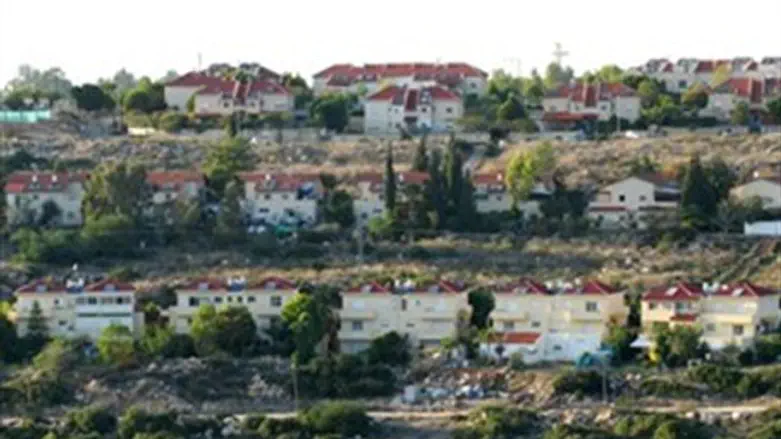
Israel met the British and French ambassadors and Germany's deputy envoy over EU plans to ban its 28 members from dealing with Jewish communities in Judea, Samaria, eastern Jerusalem and even the Golan Heights, a top official told AFP on Friday.
The envoys were warned of a serious crisis between the European Union and Israel over the move, the high-ranking foreign ministry official told the news agency.
"The British and French ambassadors and German number two were invited yesterday to the ministry... for discussions on the EU guidelines," he said.
"We asked the ambassadors to tell their capitals that no Israeli government would accept these conditions, and they could provoke a serious crisis with Israel," he added.
The guidelines, published in the EU's Official Journal Friday morning, forbid EU member states from funding or dealing with entities in territories located beyond the 1949 Armistice Line.
Germany and France confirmed the Thursday meetings but the British embassy did not immediately comment.
Christophe Bigot, France's ambassador to Israel, told AFP that the Israeli foreign ministry's director, Rafi Barak, had called the meetings.
"The Israelis informed us of their concerns" over the EU plan, he said. "I reminded them that the new guidelines were a continuation of European policy on settlements."
EU foreign policy chief Catherine Ashton also said in a Friday statement that the guidelines simply "reiterates the long-held position that bilateral agreements with Israel do not cover the territory that came under Israel's administration in June 1967."
An Israeli spokesman gave the guidelines greater significance, saying in a statement the Jewish state "rejects the attempt by the European Commission to coerce positions on issues which belong at the Israeli-Palestinian negotiations table."
Foreign ministry spokesman Yigal Palmor further questioned the "political wisdom that lies beneath these measures, regarding both their content and their timing," according to AFP.
"It would have been preferrable if the energy put in drafting these guidelines had been invested in peace promoting measures," Palmor added in his statement.
The preamble to the guidelines says that "the EU does not recognize Israel's sovereignty over... the Golan Heights, the Gaza Strip and the West Bank, including east Jerusalem... and does not consider them to be part of Israel's territory, irrespective of their legal status under domestic law," according to AFP.
The guidelines apply to "grants, prizes and financial instruments," it adds.
"Only Israeli entities having their place of establishment within Israel's pre-1967 borders will be considered eligible as final recipients" of this kind of funding.
Israeli experts said on Friday that the implications of the policy could have a major impact on how Israel does business with the EU.
For example, Holocaust survivors who have accounts in banks in areas like Ramat Eshkol – considered “occupied” under the EU guidelines – may find that their reparation payments are held up, as Germany, an EU member, would refuse to transfer money to such banks. Israeli owners of property in Europe who love in Judea and Samaria could find themselves unable to collect rent from their properties, as European courts would not enforce those contracts. The policy, said the experts, could cause a “legal morass” that would tie up courts in Israel and the EU for years.
Deputy Foreign Minister Zeev Elkin told Arutz Sheva on Friday that it is time to halt all “gestures” toward the Palestinian Authority (PA), and added that Israel has “no reason to allow the Europeans to act vis-a-vis the Palestinians in all kinds of projects they are promoting.”
“This is a scandalous decision, which shows that the Europeans are behaving like a bull in a china shop,” he said, “and that they have allowed the bureaucratic echelon to lead them without receiving instructions from the diplomatic echelon.
(Arutz Sheva’s North American Desk is keeping you updated until the start of Shabbat in New York. The time posted automatically on all Arutz Sheva articles, however, is Israeli time.)